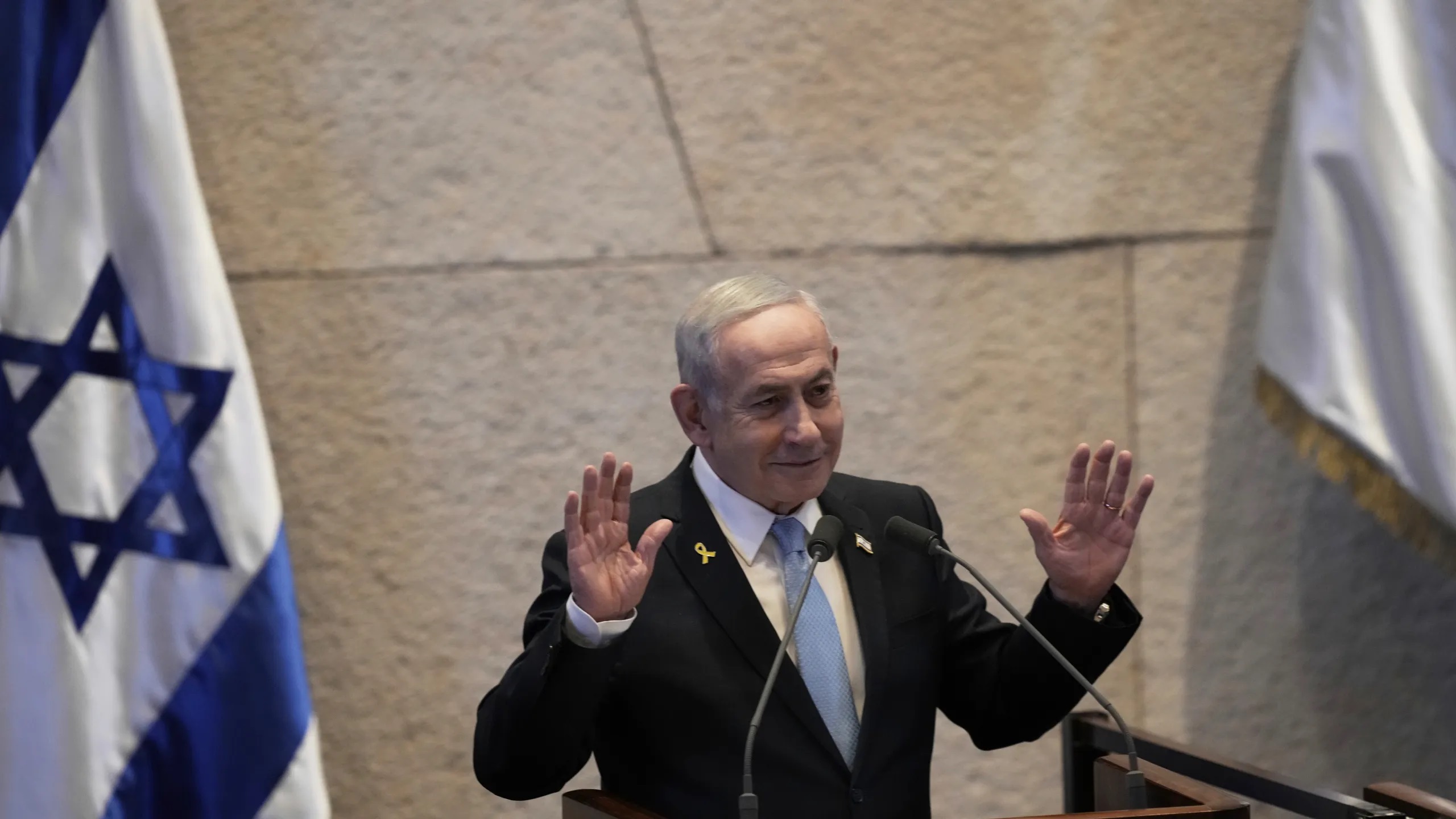Israeli Prime Minister Benjamin Netanyahu’s fragile right-wing coalition managed to withstand a key political challenge on Thursday, June 12, 2025, after defeating an opposition-led attempt to dissolve parliament.
The motion, backed by opposition parties, was aimed at forcing early elections.
However it failed after coalition lawmakers reached a compromise over the contentious issue of mandatory military service for ultra-Orthodox Jews.
The proposal to disband the Knesset was narrowly voted down, with 61 members opposing it and 53 voting in favor.
If successful, the motion would have initiated the process of calling early elections in Israel.
Knesset Foreign Affairs and Defense Committee Chairman Yuli Edelstein announced that an internal agreement had been reached regarding the basic framework of a future draft law.
“After extensive discussions, we have agreed on the principles that will form the basis of the legislation,” Edelstein said in a formal statement.
The failed bill was introduced by opposition parties in an effort to break Netanyahu’s increasingly unstable coalition.
The primary point of contention has been the longstanding military draft exemption granted to ultra-Orthodox Jewish men engaged in full-time religious studies.
This issue has resurfaced with greater urgency during Israel’s ongoing war in Gaza, as the military faces growing manpower needs.
Military service is compulsory for most Israeli citizens.
However, since the state’s founding in 1948, ultra-Orthodox men who dedicate their lives to studying Jewish religious texts have been effectively exempted.
At that time, the ultra-Orthodox community represented a small fraction of the population.
Today, their numbers have grown significantly, making the exemption a focal point of political and social debate.
The opposition hoped that growing discontent among Netanyahu’s ultra-Orthodox allies, particularly the Shas party and United Torah Judaism (UTJ), over conscription reform would push them to vote against the government.
Labour lawmaker Merav Michaeli, speaking ahead of the vote, said, “More than ever, it is urgent to replace Netanyahu and this toxic, damaging government.”
Despite earlier threats to support the bill, ultra-Orthodox parties ultimately chose to stand by Netanyahu, after last-minute negotiations appeared to yield some form of compromise regarding their concerns.
The pressure on Netanyahu is not just external. Within his own Likud party, there are demands to broaden conscription and introduce penalties for those who evade military service.
However, these efforts run into fierce resistance from the ultra-Orthodox factions within the coalition, who insist on permanent exemptions for their communities.
Netanyahu’s coalition, established in December 2022, is widely regarded as the most far-right government in Israel’s history.
The prime minister has had to carefully balance conflicting interests among secular nationalists, religious conservatives, and hardline factions, especially as the war in Gaza has escalated.
Finance Minister Bezalel Smotrich, a key figure in Netanyahu’s far-right alliance, issued a stark warning against toppling the government during wartime.
“To bring down the government now would be an existential threat to the state of Israel,” he told the Knesset during the debate.
Smotrich also emphasized that ultra-Orthodox participation in military service is now a “national and security necessity.”
As the vote approached, reports from Israeli media indicated that most ultra-Orthodox lawmakers had agreed not to support the dissolution motion, ensuring the coalition’s survival for now.
The controversy over military service exemptions has long been a divisive topic in Israeli politics.
However, it has grown more urgent as the country’s military demands increase in the wake of prolonged conflict in Gaza.
More than ever, Netanyahu finds himself caught between competing pressures: to strengthen the military by expanding conscription, while maintaining support from religious allies who insist on preserving their community’s special status.
Although this week’s challenge was ultimately defused, the episode highlights the deep fractures within Netanyahu’s coalition.
It also highlights the ongoing volatility of Israeli politics as war continues to shape national priorities.







